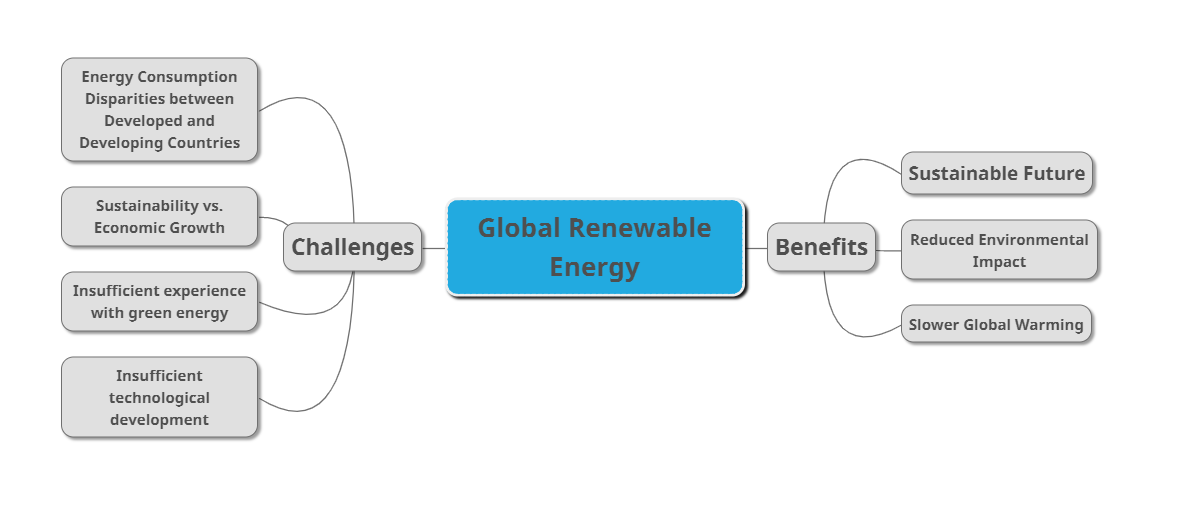Topic
Global warming has become a pressing concern for the global community, as developed societies have reached critical levels of environmental impact. Until recently, humanity has laid an emphasis on economic growth and progress, considering these aspects to be the key to a prosperous society of the future. Nevertheless, as the impact of various industries on the environment has attained a global and barely deniable level, new perspectives have been introduced. More specifically, humanity has come to realize that the comfort and development of the current residents of the Earth must not be achieved at the expense of future generations. Thus, the concept of sustainability has acquired a central role across most industries of today.
Issue
In this context, global warming is one of the most alarming phenomena that reflect global climate change. Humanity’s growing consumption of energy is said to be the leading contributor to the issue, prompting research in the direction of greener, renewable energy sources. However, a question arises of whether green alternatives will suffice to provide the growing demand for energy conditioned by the ongoing technological development.
Research Question
Can humanity rely on renewable and green sources to meet all its needs while alleviating the immense environmental impact of the industry?
Draft of the Thesis Statement
This paper argues that green energy in its current state will struggle to meet humanity’s demand and the development of better hybrid, integrated grids is required. More specifically, most of the existing infrastructure is centered around more traditional sources of energy, and the full-scale implementation of renewable alternatives will require major financial and technological contributions. In addition, such transformations require a major change of the global mindset, as improvements in one part of the globe may be negated by the lack of progress in others. In order to meet the growing demand for electricity, the renewable energy framework is to be considered within a broader context of integrated hybrid technologies that encompass the adjacent industries, as well.
Outline
- Introduction and thesis statement
- Logos: Rational presentation of the central argument
- Ethos: Acknowledgment of the opposing views
- Pathos: Refuting the counterarguments, engaging the emotional dimension
- Conclusion
Summary of The Forms of Support
- Logos: a logic-based discussion, surrounding the risks of an accelerated transition to fully renewable greed. For this purpose, it is planned to use statistical and economic data, showing that the current green solutions are underdeveloped in comparison to humanity’s demand for electricity.
- Ethos: in order to establish the authority of the argument, it is planned to rely on the objectivity of the discussion. In this regard, the examination and analysis of the opposing point of view will be provided. More specifically, the investigation of an alternative position will serve to establish the scope and diversity of the discussion.
- Pathos: this emotional appeal of the discussion is to be ensured by outlining the consequences of the improper implementation of full-scale renewable energy models. If the process sacrifices the efficiency in favor of sustainability, the social and political drawbacks will be significant. Ultimately, it may undermine the decades of struggle to reduce the environmental impact of the industry, affecting regular people and their households.
Evidence
The transition to greener, renewable energy frameworks is said to be the key to a sustainable future for the Earth. The arsenal of such sources is rather broad today, comprising solar energy, hydroelectricity, wind turbines, and other alternatives to carbon-based formats. On the other hand, the current pursuit of sustainability is centered around the developed nations that have come to acknowledge their impact on the environment. Tatra states that many emerging economies – for example, India – have yet to realize the effect of carbon-based paradigms on global warming (99). At the same time, such countries often have immense populations that exhibit a strong and growing demand for energy. Under these circumstances, tensions arise between economic growth and sustainability. In other words, residents and authorities tend to believe that an incline toward greener practices will undermine the economic capacity of the nation.
In addition, another question concerns the technological preparedness of humanity. As of now, the core of the Earth’s energy grid continues to comprise traditional forms of energy, mostly carbon-based and nuclear. While green alternatives are being developed at a rapid pace, they still remain in the minority, making their full-scale application on a global level questionable (Aghahosseini et al. 188). Roy and Ragunath acknowledge the ongoing pursuit of sustainability in energy consumption, adding that the advanced enough technology is yet to be developed (para. 2). According to them, hybrid systems are more likely to yield sufficient results, but humanity needs to make additional progress to attain the required level of technological development. As such, the proposed research will examine the current body of literature in order to determine the current progress of humanity in the context of the discussed issue. Based on the findings, it may be possible to estimate the degree of preparedness and approximate prospects on the way to a truly renewable energy grid.
Mind Map

Works Cited
Aghahosseini, Arman, et al. “Analysing the Feasibility of Powering the Americas with Renewable Energy and Inter-Regional Grid Interconnections by 2030.” Renewable and Sustainable Energy Reviews, vol. 105, 2019, pp. 187-205.
Sagar, Roy and Smruti Ragunath. “Emerging Membrane Technologies for Water and Energy Sustainability: Future Prospects, Constraints and Challenges.” Energies, vol. 11, no. 11, 2018.
Tagotra, Niharika. “The Political Economy of Renewable Energy: Prospects and Challenges for the Renewable Energy Sector in India Post-Paris Negotiations.” India Quarterly: A Journal of International Affairs, vol. 73, no. 1, 2017, pp. 99-113.